A failsafe way to measure a nation's true happiness index is ask the gays.
This shouldn't come as a big surprise. Worldwide, from Dublin to Tokyo, the state of LGBT rights are always a barometer for the health and contentment of the wider nation - and it's not hard to figure out why.
If life's going well for LGBT citizens then it's likely going well for everyone else, because LGBT people live on the frontlines, they can tell which way the political wind is blowing because history has taught them to.
What perhaps is unexpected is that the experience of being gay connects people who have grown up in radically different societies and cultures like Ireland and Japan.
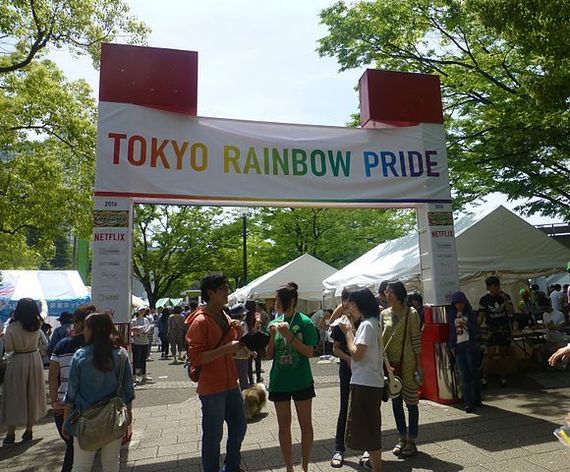
Tokyo Rainbow Pride is a welcoming and growing highlight of the city year.
Because of that international connecting thread I was surprised by how easy it was to bridge the distance that separated Ireland from Japan, because the challenges were mostly the same I discovered, as were the political and spiritual lessons.
On my recent trip to Tokyo for St. Patrick's Day it occurred to me that one of the most illuminating ways to understand the Asian nation would be to explore the state of LGBT rights there, especially as seen through the eyes of well-placed LGBT locals.
For this request, the Tokyo tourism board introduced me to Shintaro, the president of Out Asia Travel an LGBT travel company that knows Asia and the Tokyo scene well.
Shintaro, who is also a Global Ambassador for IGLTA, the International LGBTQ+ Travel Association, turned out to be the ideal guide to the over 300 gay bars in the Shinjuku Ni-chome ward alone. This being Japan, the gay bar district has a long and fascinating history and Shintaro is a knowledgable and very funny guide to it all.
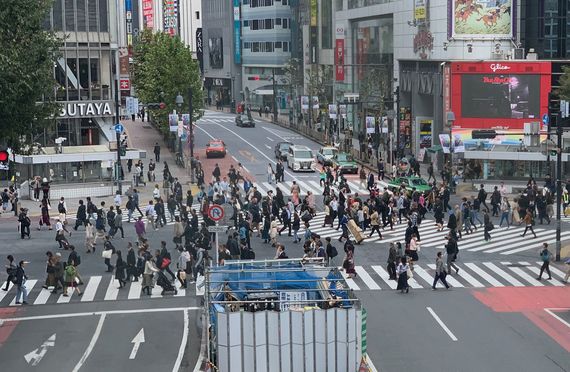
The famous Shibuya scramble crossing in Tokyo.
I was fascinated to learn how deeply an LGBT experience on one side of the world could connect me to a place and people on another.
Meanwhile, the LGBT scene here manages the very Tokyo trick of being flashy and at the same time quite discreet.
Shintaro pointed out the many campy piano bars and the cruise ones and as we walked along the streets of the gay village, then a glamorous drag queen called out to him as we passed her cabaret spot and the pair were soon cackling over all the local gossip.
When you walk around Shinjuku you simply won't know (or even see) the half of it, Shintaro explained. Wider access takes some patience and an entree and that means you have to make a good impression, so be friendly and considerate and watch doors open. Socially, that's broadly similar to what happens in Ireland.
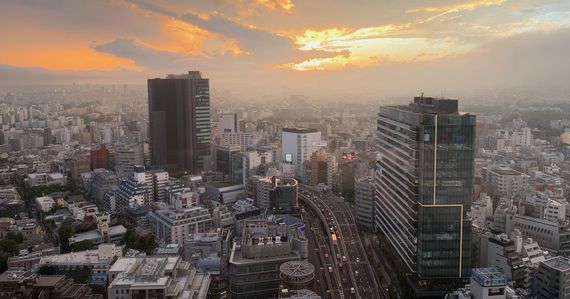
The Tokyo skyline is an unforgettable sight year around.
For example, Japan is one of the leaders of gay rights in Asia, but Japanese society is also very socially conservative, observing strict norms with little room for acceptance of anything different.
Yet nonetheless, it is making strides to accept and protect its gay community, including quietly opening the door to civil unions and promoting Tokyo as a tolerant and welcoming destination for LGBT tourists (which it certainly is). Again the Irish parallel is unmistakable.
The Tokyo government's counter-intuitive approach, where the right hand pretends not to see what the left hand is doing, is very Japanese but a time will come soon when it will simply have no choice but to do what it dislikes, which is to make a major change to the law and the society it guards.
Until then, this "ignore your LGBT citizens them whilst you simultaneously protect them" approach seems to be the agreed path forward.
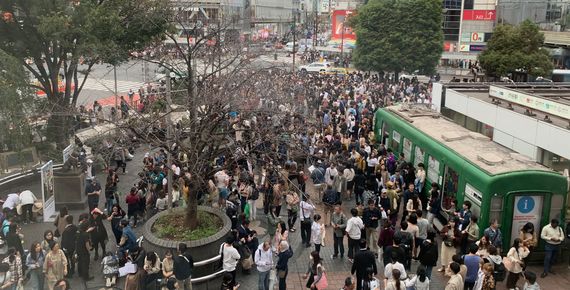
Shibuya is a famous meeting spot in Tokyo.
Taiwan lawmakers also recently signed a bill legalizing gay marriage. The neighboring country has a more progressive attitude to gay rights than Japan, but nothing happens in a vacuum. It'll be interesting to see how the Japanese square this ever-widening circle.
So a national conversation about LGBT rights is looking overdue. With Taiwan approving marriage equality in its back yard, LGBT issues can no longer be deemed some kind of imported western issue. Change is clearly coming.
One of the many signature Tokyo gay bars Shintaro steered me towards was Uncle Uncool. Despite its name, it looked very hip indeed, being an atmospheric whiskey bar that stocks first-rate offerings from Hibiki to Jameson.
A little oasis of calm in a frenetic district, if you can't speak Japanese here the storekeeper can use Google Translate on an iPad. But it's better to make your arrangements ahead of time and have a gay Japanese friend bring you (and mention Out Asia Travel upon entering). It's an ideal example of the kind of bar that makes LGBT life here so special.
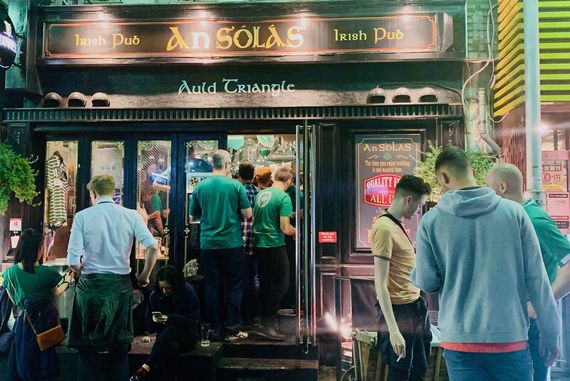
An Solas public house is a gathering spot for the Irish in Tokyo.
Visiting Tokyo is impressively easy, by the way. I was greeted in English at the airport booking desk, I bought a coach ticket to my city center hotel without fuss, I was delivered promptly to the front door of my hotel and the check-in staff was courteous and wonderfully welcoming.
When you step off a 13-hour flight you really want to get to your destination, then to your room, then to your shower and bed, without error. This is exactly what happened at The Cerulean Tower Hotel which is run by the Tokyu Hotel Group (it is LGBT welcoming).
After a stress-free check-in, I had ample time to look out at the epic Tokyo skyline from the 27th floor of my hotel feeling relaxed and intrigued by what awaited me out there.
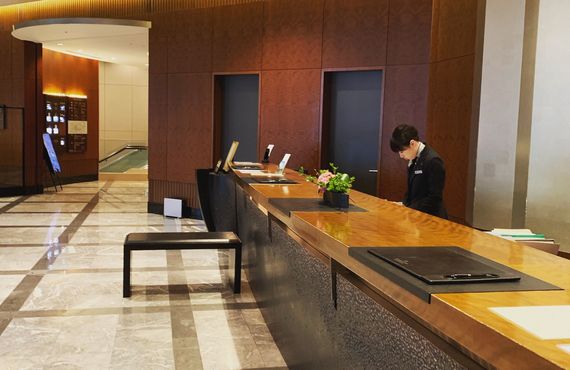
The Cerulean Tower Hotel in Shibuya, Tokyo is an ideal base for your first (or repeat) visit to the city.
Tokyo is a bigger city than New York and far more beautiful, I discovered. Its skyscrapers are every bit as tall as our own but most of the city is built with a keen eye for livability, so nature is everywhere: trees, parks, gardens, flower pots, anything to bring a little of the natural world to the concrete buildings.
But the most striking thing I learned about Tokyo is that it gives you space to be yourself and the privacy to enjoy it - and it only asks the same courtesy of you.
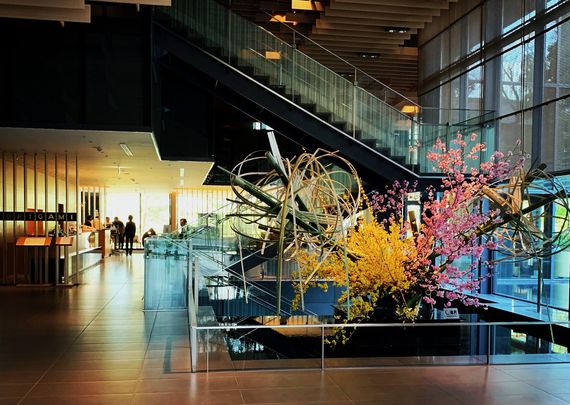
The Capitol Hotel Tokyo is a world-class five start located in Chiyoda City, Tokyo.
If the LGBT happiness index is a reflection of the nations then Tokyo is getting ready for its close up. My advice is to go. It's a city that's changing rapidly, and it's going to be so much better than you dared to imagine.
And mention Out Asia Travel.
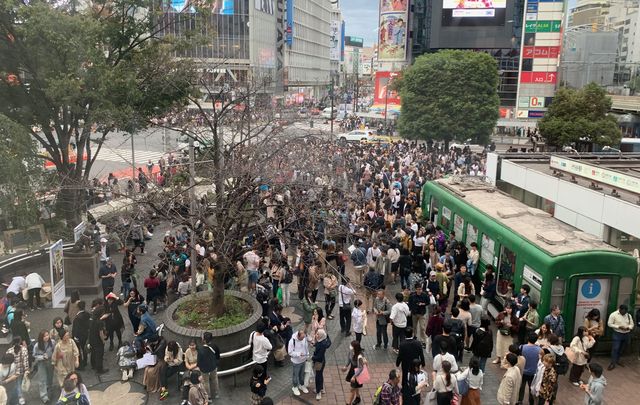



Comments